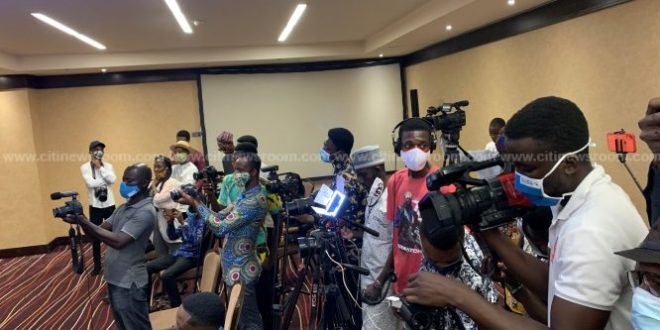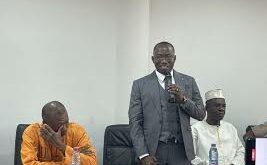Ghana has dropped 30 places on the 2022 World Press Freedom index.
The 2022 index put together by campaign group, Reporters Without Borders, saw Ghana ranking 60 after placing 30 in 2022.
This is Ghana’s lowest-ever ranking in 17 years after it ranked 66th and 67th in 2005 and 2022 respectively.
The latest report is out of 180 countries assessed with Ghana recording a decline in its indicative points from 78.67 percent to 67.43 compared to last year.
It said although the country is considered a regional leader in democratic stability, journalists have experienced growing pressures in recent years.
“To protect their jobs and their security, they increasingly resort to self-censorship, as the government shows itself intolerant of criticism”, the report mentioned.
According to Reporters Without Borders, the safety of Ghanaian journalists has deteriorated sharply in recent years.
For example, the campaigners said in 2020, reporters covering the effectiveness of anti-COVID-19 measures were attacked by security forces.
That is not the only grounds. Ghanaian political leaders are said to be making death threats against investigative journalists.
“Nearly all cases of law enforcement officers attacking journalists are not pursued”, it said.
Recently, the US Department of State also released its 2021 annual Country Reports on Human Rights Practices which reports on key human rights issues in various countries across the world including Ghana.
The report cited Ghana for a number of human rights abuses including clamping down on free speech.
Some specific cases mentioned in the report included the killing of social activist, Kaaka in Ejura, and the arrest and abuse of Citi FM/Citi TV’s Caleb Kudah.
The death of investigator of the Tiger Eye PI team in the Number 12 exposé on corruption in Ghana football, Ahmed Saule has not yet been closed after he was shot dead by some unknown assailants in January 2019 at Madina in Accra
Before this, in July 2018, the National Security personnel, in another notable incident, arrested and tortured two journalists after the publication of an article that criticized the National Security Minister, Albert Kan Dapaah.
Over the course of the Akufo-Addo administration, it has been criticized on these points, as well as the closure of some prominent pro-opposition radio stations.
The government’s response so far to these incidents has been largely condemned, with many suggesting that it gives the impression that the state is either complicit or tacitly supports such actions against journalists.
 Home Of Ghana News Ghana News, Entertainment And More
Home Of Ghana News Ghana News, Entertainment And More





